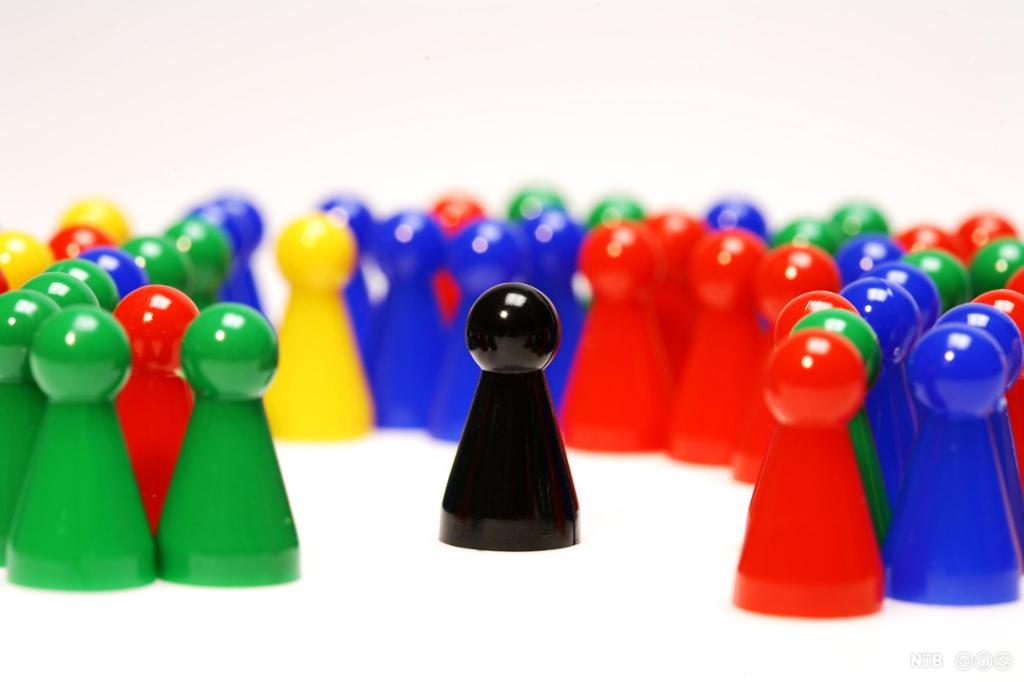Tasks: Structural Racism

Before you move on to the questions below, find out more about white privilege. You can do this by watching the video where psychologist John Amaechi talks about white privelege, which you will find by clicking the link below, or you can search for the term online.
Link to YouTube video where psychologist John Amaechi explains what 'white privilege' is
- What is white privilege? Explain the term in your own words.
- Write a list of other types of privileges that you think could influence people in positive or negative ways. What are your privileges?
- What is structural racism? Explain the term in your own words and point to examples of structural racism in modern society.
- Is it possible for a society to be racist, even if the members of that society are not racist?
- What is the difference between being a non-racist and being an anti-racist?
- How can the problem of structural racism be solved?
- Is there structural racism in Norway? Have you ever seen or experienced racism yourself in any form?
What does it mean to be a Karen? Where does the term come from? What is a typical Karen and in which situations can you expect to meet her? Is there a male equivalent? The word is an example of a neologism; do you think the word will continue to be used in the long term?
The following words are all related to racism and racial relations.
- Write down a good definition of each, using examples as part of your definition.
- Some of the words mean almost the same thing. Can you identify them?
Every-day racism
Bigotry
Implicit bias
Individual racism
Institutional racism
Prejudice
White privilege
Ethnocentrism
Racial equity
Structural racism
Systemic racism
Cultural appropriation
Ethnicity
When you read the article about structural racism, you may have noticed that the word 'Black' was capitalised while the word 'white' was not.
- Why do you think there is a difference between the two words?
Read through the article 'AP says it will capitalize Black but not white' from Associated Press.
Why is there a distinction made between the words 'Black' and 'white', according to the article?
Link to article: article on the Associated Press' webpage.
- Are there any arguments against capitalising just one of the words?
You are now going to immerse yourself in race relation data from the United States or the United Kingdom.
Divide the class into groups of 3-4 students. Each group chooses a topic that they work with. We have provided you with some suggestions for research questions in the box below, but you are also free to find your own topic.
As a class, make sure that both countries are represented and that your research topics do not overlap too much. Use relevant statistics to support your argument.
Before you start you should decide on a product. You could:
- make a podcast
- arrange a panel discussion
- make a creative film
- make a written report
- be the teacher. (Take over the class and engage your fellow students with different educational activities related to your topic.)
Your final product should include relevant statistics. Remember to refer to your sources in a clear way. Also remember to use appropriate terminology related to race and discrimination.
In 1988, the scholar and activist Peggy McIntosh published her famous article White Privilege – Unpacking the Invisible Knapsack. In this article she presents a list of 50 privileges she admits that she has as a white woman.
Use the internet and find out more about Peggy McIntosh and her article. Then write a text where you discuss why she decided to write the list and to what extent this list is relevant in our society today. You will find an abridged version of the article by clicking on the following link: 'Link to the article: 'White Privilege – Unpacking the Invisible Knapsack'
In his acceptance speech for best leading actor during the 2020 Bafta award, Joaquin Phoenix called out the structural racism that he experienced in showbiz.
Write a text where you explore the topic of racism in show business and the stereotyping of black actors in film. Use the internet and find relevant information. Remember to refer to your sources.
What can we as individuals do to fight racism? And whose responsibility is it to create the change? Write a text where you explore these questions. You may find some inspiration in the following two videos, but feel free to include other thoughts and ideas. Remember to refer to any source you may use.
Video 1: Joy DeGruy: click here to see an excerpt from the documentary Cracking the Code on YouTube
Video 2: Heather McGhee: click here to see the film: What can I do to Change? on YouTube
What do the statistics below tell you?
Did anything in the statistics surprise you?
Relatert innhold
An article discussing the existence and the consequences of structural racism.